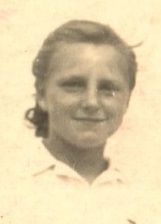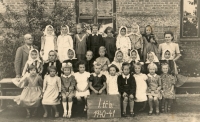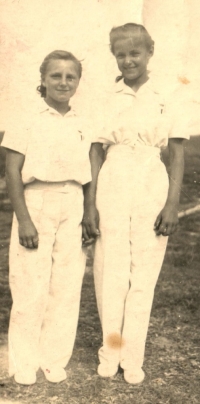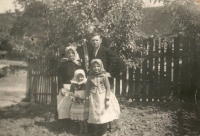Kids, we don‘t have a house anymore

Stáhnout obrázek
Anna Čechová, née Stibůrková, was born on 5 November 1933 in Tvrdonice near Breclav. The family had a small farm and a shop. In the spring of 1945, fierce fighting broke out between the Wehrmacht and the Red Army in the area on the Moravian-Slovak border. The villagers had to hide in the cellar for several days. A large part of the village burned down, the Stibůrkas lost their house and shop and had to rebuild it after the war. Anna worked all her life in the shop, first in the family shop and then in the nationalised one, which was transferred to the local Jednota. Later she worked in the Pramen shop in Břeclav.





